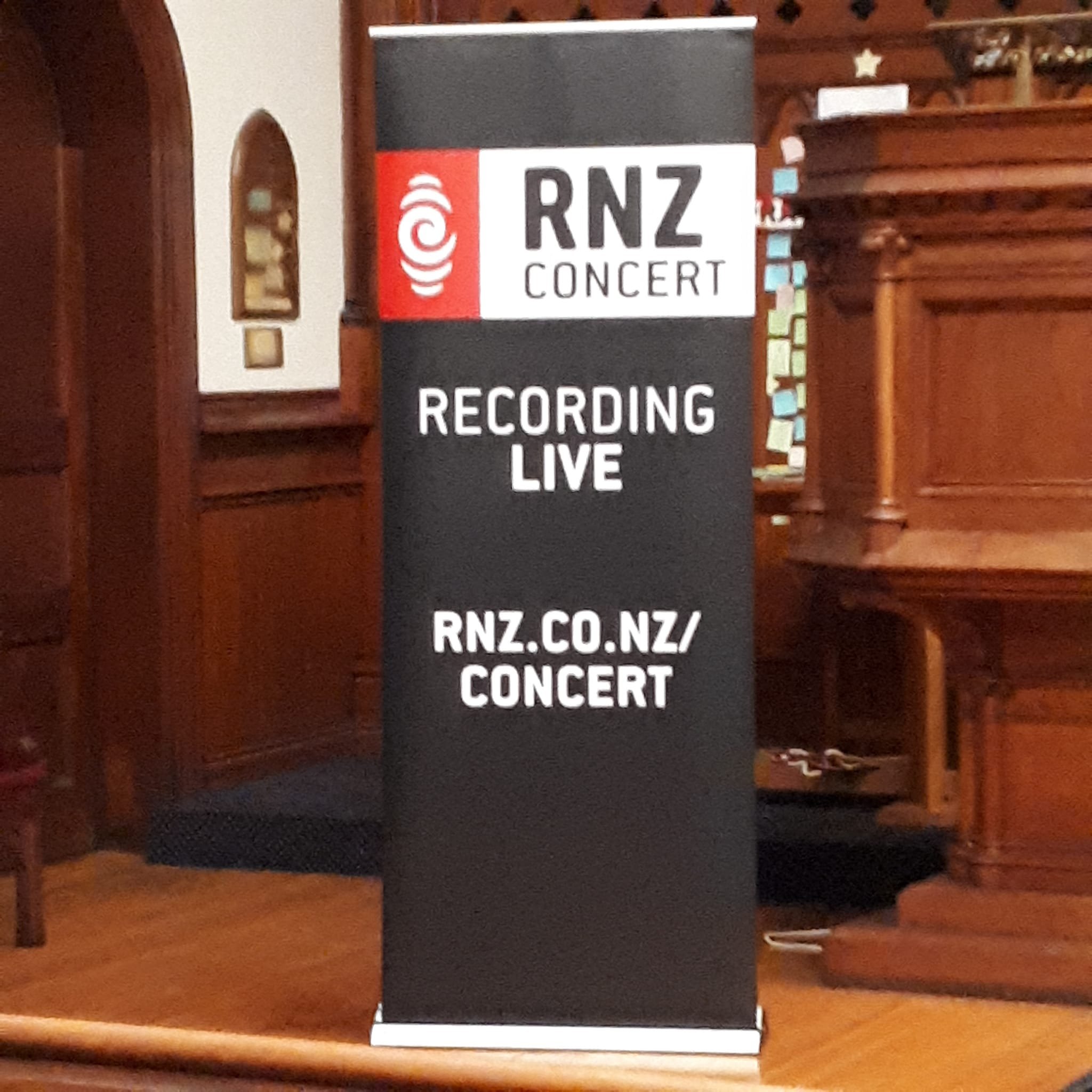The media merger has been scrapped - what’s ahead for RNZ Concert?
The proposed merger of RNZ and TVNZ into the entity Aotearoa New Zealand Public Media has been completely scrapped by the government. What does this mean for RNZ Concert?
In announcing the decision on Wednesday 8 February, Prime Minister Chris Hipkins said the work on the merger "will stop entirely. Support for public media,” he said, “needs to be at a lower cost and without such significant structural change."
This week’s announcement comes after at least three years of work on the Strong Public Media project. The planned timeline had the entity up and running by 1 July 2023. The Ministry of Culture and Heritage advises that around $16 million has already been spent on the project, on staffing, consultancy, a Governance Group and an Establishment Board. In Budget 2022 the government committed additional change and establishment funding for the new entity as well as annual funding.
The Prime Minister’s announcement included the good news that, with the cancellation of the merger, some additional funding would be available to RNZ and that the broadcaster “would not have to wait” for the 2023 Budget process.
For those with an interest in RNZ Concert and its work, the proposed merger represented a second existential threat to Aotearoa’s “classical and beyond” music network. The first coincided with the early work on the merger, at the beginning of 2020, when RNZ management proposed eviscerating Concert’s staff and already meagre budget and using those resources for a new “youth” network. A nationwide storm of protest encouraged RNZ to abandon those plans, but the Save RNZ Concert campaign, initiated in February 2020, became concerned about merger plans. RNZ’s small music network was already struggling to thrive within a larger organisation that seemed unaware of its value to its audience and the arts and music sector. It was potentially even more vulnerable in a merged entity, especially alongside the much larger TVNZ interests.
The media merger appears be completely off the table. Although the extended consultation and development processes seldom mentioned RNZ Concert directly, they enabled the campaign Save RNZ Concert to continue to shine a light on the work of Concert, meeting with Ministers and Ministry staff, making presentations to the Governance Group and Establishment Board members and submissions into the subsequent Select Committee process.
What lies ahead for RNZ Concert in 2023? I talked recently to Concert’s Manager Liisa MacMillan, appointed in April 2021. Our conversation coincided with the 3rd anniversary of the 2020 debacle and she assured me the Concert staff team is now in a much happier place. “We’ve managed to look to the future, move on, rebuild some trust and bring some joy back into the work we do. We’ve had to rely on and support each other over the past two years, and the results are in your ears and in the audience results. The team is knowledgeable and passionate and dedicated; this is where they can add value to the world and we’re back to focussing on that.”
New members of RNZ Concert’s on-air presentation team
Siliga Sani Muliaumaseali'i (left) and Carey McDonald
McMillan’s approach to change at Concert has been incremental, slowed down by pandemic disruptions that also provided “extra thinking time”. After all, she says, “there wasn’t a huge amount wrong.” She’s made changes to the on-air presentation team which is now at “full complement”, completed a technology project which will facilitate curation of the playlist and made some subtle shifts in what she calls the “overall feeling and vibe” of Concert. “We’re acknowledging the emotional relationships that humans have with music and that our audience has with RNZ Concert and doing things that will reinforce and enhance that.”
Some members of the Concert audience have complained that the on-air offering has become a little stale and repetitive. McMillan agrees that the “fairly stable” Concert playlist needs a refresh. It’s the next piece of work for her team. “At the end of last year we did some audience research and received a huge and heartening response. The people who ran the survey for us were gobsmacked by the numbers who gave up time to tell us what they like and don’t like. Now we’ll look at the actual music selection to make sure there’s the right balance of music, genres, types, instrumentation and so on. There will be a subtle evolution.”
The right music at different times of day will be a focus, supporting the audience’s “different activities, energies and state of being”. For those who’ve lamented the loss of the magazine-type programme, Upbeat, and other spoken context for the music, some interviews with musicians and those working in the arts sector are being introduced in the afternoon slot hosted by Bryan Crump, who has moved across to the Concert team from RNZ National.
RNZ Concert
A stronger approach to promotion of its work
Concert is working hard to tell its own story more effectively, both publicly and internally within RNZ, McMillan tells me. “Our approach is about being friendly and approachable, while being knowledgeable curators of the music we’re sharing. And one of our unique values is being in New Zealand, so that’s reflected more in our visual branding but also in the addition of more context - for instance, introducing New Zealand music practitioners to the audience.” She’s also building what she calls a safe place for new people to become Concert listeners.
In 2020 RNZ’s CEO, Paul Thompson, spoke of his ambition to have a weekly audience of a million listeners for RNZ. With a cumulative radio audience of 678,000 in the last survey, down 7.3% from a year earlier, his goal appears to be some distance away. RNZ Concert’s weekly audience was 200,400 in the last survey of 2022, a figure that stacks up well against similar music broadcasters internationally. After the Save RNZ Concert campaign and during lockdowns in 2020, it peaked at over 260,000. The current increase in promotional activities for Concert may yield results.
RNZ Concert
…its national live recording work has been curtailed at times by budget constraints
RNZ Concert has undertaken its work in a context of severe budget constraints since brutal cuts in 2016. RNZ’s total annual budget is currently approximately $43 million, of which Concert’s work and staffing is allocated about $3.5 million, a mere 8% of RNZ’s funding for a network attracting over 30% of RNZ’s cumulative audience. McMillan, appointed as “champion” for RNZ Concert, has apparently accepted the resource situation stoically since her appointment, but says now that if more funding comes to RNZ as a result of the merger cancellation, she’ll be arguing for an increased Concert budget.
At this stage, no specific additional allocation has been made for RNZ, though a figure of $10 million has been mentioned. When asked what aspects of Concert’s work need additional investment, McMillan suggests people and technology as the key areas required, to maintain Concert’s value to its audience. “There are a wide range of other areas it would be great to be able to advance, but until more is known about what might be available, and how it will be allocated, it’s not helpful for me to speculate. I will ensure RNZ Concert’s needs and aspirations are well represented as this process is worked through.”
Read more Five Lines articles about RNZ Concert and the Save RNZ Concert campaign:
RNZ Concert – an opinion piece 22 February 2020 (first published in NZ Listener)
Save RNZ Concert 3 May 2020
RNZ Concert – cultural treasure or bland soundtrack to our lives? 2 February 2021
RNZ Concert’s new manager – passion for music and radio 20 July 2021(first published in the APO’s Phil News)
RNZ Concert – what does 2022 hold for the network? 10 February 2022




